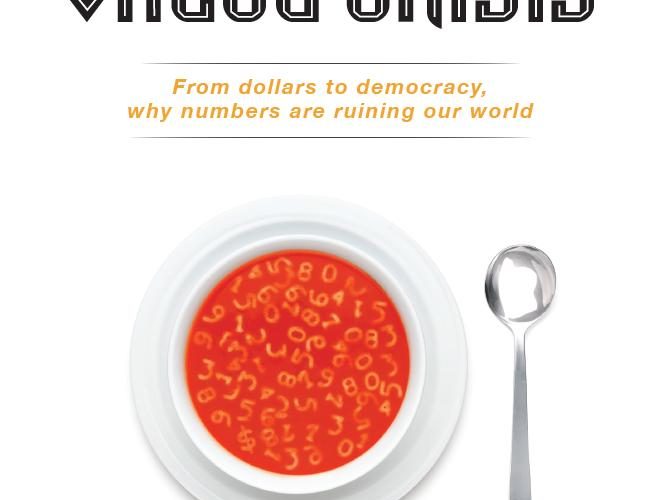Andrew Welch has a thing about numbers. He loves them. But as he gradually began to see the connection between growing, multiple global crises and the lack of awareness surrounding the day-to-day human behaviour that produces them, he began to wonder if humanity’s over-reliance on numbers was responsible. “We use debt to conjure up trillions of dollars from nothing; we voraciously run through our planet’s limited resources; and we recklessly contaminate our environment with waste, byproducts and dangerous substances.” The Value Crisis is the product of his attempts to reconcile this disconnect between behaviour and consequence.
The value crisis referenced in the title is the conflict between our human value system, which is ancient, and our number-based value system, which has developed over time, most of it very recently. Welch’s premise is that these two systems are incompatible and unbalanced and that fundamental human values are being displaced at great cost to us all – personally, as a species, and ultimately for every creature on the planet. This crisis of values is posited as the greatest challenge facing society and as the root cause of most of our environmental, economic and social ills.
Welch traces the origins of the value crisis from the beginnings of numeracy and the invention of math, through theories of decision making and indicators of well-being, to the history of money, the workings of the global economy and the nature of corporations. It’s quite a ride, and there are many fascinating side trips along the way.
For instance, he explains the concept of exponential growth (a phenomenon that is notoriously poorly understood), thoroughly and from several points of view. The examples are thoughtful and Welch relates them directly to the central premise of the book. And he performs this feat over and over again with such seemingly disparate concepts as the law of diminishing marginal utility, prospect theory, Maslow’s Hierarchy of Needs, the fractional reserve system and the pursuit of happiness.
The book is dizzyingly well researched, drawing on a wide range of contemporary scientific research, literature of all kinds and possibly more than one accounting textbook. It is also jam-packed with details, facts, quotes and equations. Fortunately, Welch seems to have an orderly turn of mind and his argument is well built and progresses logically. He makes good use of headings and text boxes to remind the reader where she is going and where he has been. Each chapter begins with an anecdote to ground the topic and ends with a comprehensive summary. He regularly returns to his central premise, showing how the new information he’s just introduced relates to the basic theme. Anything less would have made the book quite hard to follow and not nearly as useful. At the end he has gathered all the boxed text in a separate section and included page references.
There are many good reasons to read this book. For one thing, it will likely give you many excellent conversation starters. Did you know that capuchin monkeys make exactly the same poor financial decisions as humans? How about the fact that usury is a transaction in which money is acquired without goods or labour being exchanged (through the manipulation of numbers), that until recently it was considered unethical, and that it describes a great deal of today’s financial activity? Or that if corporations really were people, they would be classified as psychopaths?
Another reason is that this book is a great reference on the in and outs of economics, politics, finance and the human condition. But the best reason to read this book is for the basic background it can give the reader on how we got into our current environmental and social predicament – the historical and behavioural origins of a dysfunctional world.
Welch is remarkably free of blame for the groups of people operating within this dysfunctional system. He saves the blame for the system itself, explaining how what appears to be greed is simply an inevitable consequence, a side effect, of the numbers. Ultimately, numbers in general and money specifically, change the nature of our relationship to each other and to the world.
Along the journey, the author provides a number of possible solutions to the value crisis – some of them headsmackingly commonsensical and some of them wildly idealistic and unique. It is well worth reading this entertaining and accessible book to find out what those solutions are.
The Value Crisis: From Dollars to Democracy, Why Numbers are Ruining Our World by Andrew Welch, Caledon : Aanimad Press, 216 pages. Reviewed by Janet Kimantas
This book is available to order from the author at www.TheValueCrisis.com.
Win this book!
We’re giving away 10 copies of The Value Crisis – for a chance to win one, tweet this review and mention @AlternativesJ or sign up for our newsletter below!
Reviewer Information
Janet Kimantas is associate editor at A\J with degrees in studio art and environmental studies. She is currently pursuing an MES at UWaterloo. She splits her spare time between walking in the forest and painting Renaissance-inspired portraits of birds.













